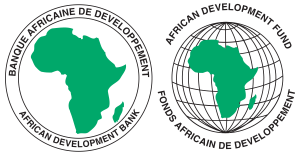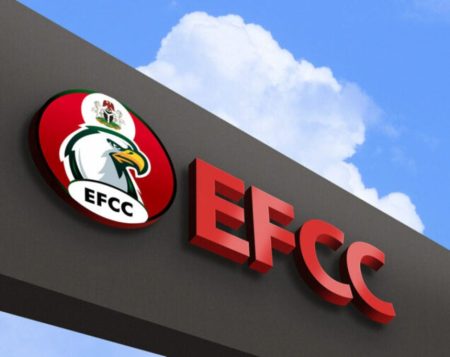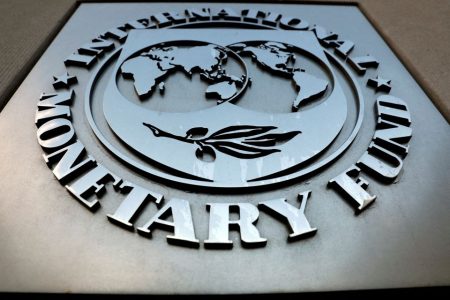 Abidjan — The African Development Bank, AfDB, has developed a three-year project in response to demands by member countries for technical assistance to monitor revenues generated from their extractive industries.
Abidjan — The African Development Bank, AfDB, has developed a three-year project in response to demands by member countries for technical assistance to monitor revenues generated from their extractive industries.
The AfDB made this known during a virtual inception workshop for the Financial Modelling Project in the Extractive Sector, FIMES, organised by the African Natural Resources Centre, ENRC, of the bank in Abidjan, Cote d’Ivoire.
According to the project report, FIMES will be implemented in eight transitional countries – Guinea, Liberia, Mali, Madagascar, Niger, Sierra Leone, South Sudan and Zimbabwe from 2020 to 2022.
Presenting the background information on the FIMES project, Mrs Vanessa Ushie, Division Manager, Policy Analysis, (ENRC, AfDB) said the project was aimed at the overall economic resilience of the continent.
Ushie also said that the scheme would build the capacity of government institutions to elaborate and use financial modelling of extractive projects to inform strategy setting and negotiate contracts and concessions.
She said: “20 government officials in each beneficiary member country will participate in the training, learning and knowledge activities as national beneficiaries, that is, 180 officials in the eight countries.
“Set criteria for selection of beneficiaries in the national cohort include relevance to primary job function on extractive revenue management, knowledge of extractive sector fiscal issues’ potential multiplier effects (trainer-of-trainers approach) and IT proficiency.
“The project commits to at least 40 per cent of beneficiaries in the eight countries to be women.
“National Focal Point (NFP) main coordinating actor in each beneficiary country must be nominated by the national government to play this role.’’
She said the NFPs coordinate the national government’s engagement on the project, interface with the AfDB and other stakeholders and manage selection of project beneficiaries.
Ushie added that the project components would focus on capacity building, peer learning and knowledge exchange, and FIMES’ Virtual Knowledge Hub.
n his contribution, Mr Yero Baldeh, Director, Transitional States Coordination Office, AfDB said the project was “competitively selected from the 2019 proposals’’.
Baldeh said the selection was done with a view to building capacity for the financing model and in turn, strengthen domestic resource mobilisation, institutional capacity and resilience in the selected transition member countries.
“The goal is to improve efficiency, sustainability and employer management practices in artisanal and small scale mining sector in the selected transition countries.
“Through this project, the bank is strengthening the human capacity of government regulatory agencies among others to facilitate formalisation of artisanal and small scale mining to generate employment and improve economic scales of several stakeholders, especially those along the artisanal and small scale mining value chain,’’ he added.
He reaffirmed the bank’s commitment to collaborate with member countries and its centre to proactively set up joint efforts to increase inclusiveness and accelerate development and support for policy reforms in the extractive sector.
In another contribution, Mrs Marie-Laure Akin-Olugbade, Director-General, West Africa Region, AfDB said the project would help the capacity of member governments to use financial modelling for optimising revenues from the extractives sector.
“This is a priority of the bank and is part of the strategy of the bank in putting together policies to strengthen resource mobilisation, industrialisation and the development of infrastructure,’’ she said.
Akin-Olugbade noted that the Covid-19 pandemic had affected economies of member countries severely, and added that governments needed to strengthen economic resilience in order to recover.
Also, Mrs Josephine Ngure, Acting Director-General, Southern Africa Region, AfDB, said it was important for countries to have a robust and evidence-based framework to process the impact of policy decisions on extractives projects.
Ngure, who was represented by Pietro Toigo, Country Manager, AfDB Office in Mozambique, added that countries should estimate the amount to which they secure fair shares of resources over the course of the project.
“This is particularly important because robust modelling gives you a sense of the impact over the whole lifespan of a project and helps policy makers not to concentrate on short term gains that may impair the ability of state to generate revenue in the future,’’ he said.
She called for coordination and leadership across the departments in ministries that were charged with the various aspects of extractive projects.
However, Mrs Nnenna Nwabufo, Acting Director-General, East Africa Region, AfDB, lamented that most African countries exported extractive resources as raw materials with little value added.
Nwabufo noted that exportation of raw mineral resources was not beneficial to the sustainable economic development of the continent.
“We look forward to FIMES leading to increased transparency and accountability in the management of financial gains for the benefits of the countries rather than personal agenda of individuals or political interest groups,’’ she said.
She added that there was also the need to create an enabling environment that fostered linkages between projects in extractives industry and the broader economy thereby contributing to inclusive and sustainable development.
She called on bank and development partners to support member countries to build strong democratic institutions.



